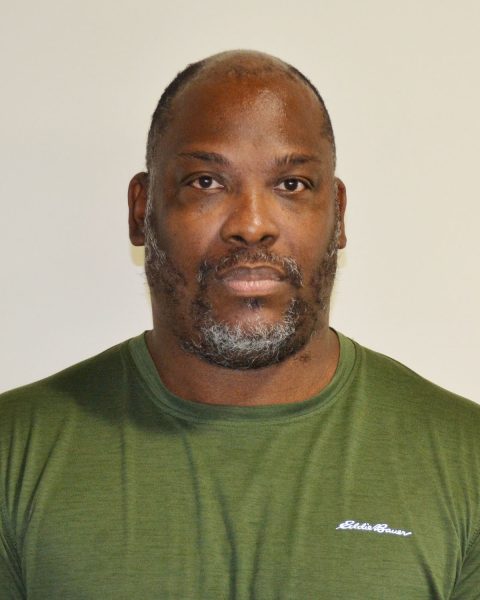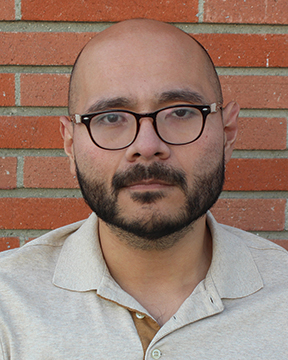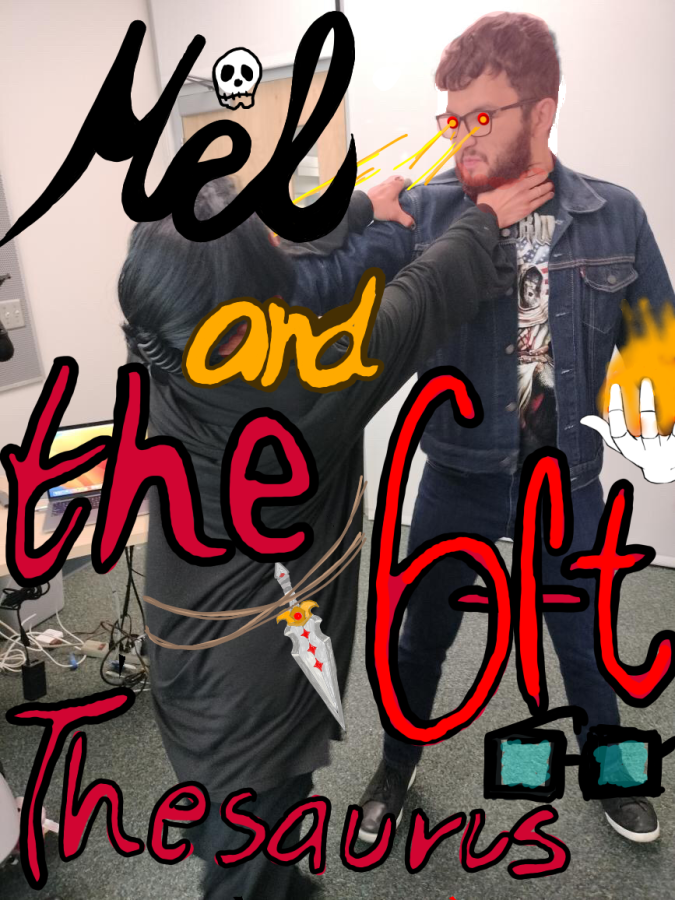Derrick Coleman 0:00
Hello, and welcome to overcoming. I’m Derrick. I’m Luis with and I’m Denise. And since this is a Disability Awareness Month, we’re going to talk a little bit about disabled student services. What is your experience?
Luis Lemus 0:22
Mine has been nothing short of it being the reason why I’m still in school and it has been that way since I started in the spring semester of 2016. Thank goodness for people like Judy Holmes our counselor who takes care of me almost by the hand from class, not literally to every class, but when I sign up for the services, she has it covered and she is very good at following up. And the testing services I mean, they’re okay. They provide what’s needed, but certain people within the staff are, you would want more than what you get but I feel you can’t really complain when you are giving a service because no matter where you’re gonna meet those people who might not be as enthusiastic as you are hopeful in any case. I guess that is my experience.
Derrick Coleman 2:44
How about you Denise?
Denise Ng 2:45
So for me, I found the disabled students service program, after having four anaphylaxis reactions to some sort of scented lotion that contain ingredients that I’m allergic to. And at the time, my professor, he, he refused to call 911 or the police, you know, or even let me out of class. So, you know, many times I would just walk out. And so I actually found it on a Saturday, but they were closed. So I made sure that I went back and said, what do you do here? You know, what services do you provide? You know, these are the issues that I’m having. And I don’t know what to do. I mean, my only other alternative would be to drop out. So Judy immediately spoke to me. We just so happened to have the same advisor. And she’s just great. So Judy came to speak with me, she asked me what was causing the allergic reaction and so forth. I joined the program, it’s very easy to do, all you have to do is give them your letters from your doctor stating that you have a disability and what it is, and so that they could accommodate you. And so, ever since then, you know, I receive a letter from Judy each semester to each professor, asking them to make an announcement to students, asking them to refrain from wearing certain products or bringing peanuts into the classroom, and so forth, because I’m also allergic to peanuts. So, for the most part, it’s been successful. I mean, this semester, we’ve had a couple of hiccups. We’ve had quite a few hiccups. But I think students overall they’re trying their best to be respectful and to keep me safe. And that’s what the DSPS does. Not all advisors are the same. I’ve witnessed other students not even being able to get an appointment because the front office won’t give them an appointment that’s, that can accommodate their schedule, especially their school schedule.
Derrick Coleman 5:22
Right.
Denise Ng 5:23
I have had a lot of hiccups with DSPS as well, and not my advisor, just so you know, not my advisor. But, you know, the front desk and with specific staff. And one of the things that they have to remember is that, you know, they’re there to help us succeed. They’re there to help us to make sure that we have the tools that we need.
Derrick Coleman 5:48
right.
Denise Ng 5:49
So I’ve actually written letters, multiple letters, pointing this out. And so now they have a new dean or a new acting Dean, Steve La Vigne. And he’s been wonderful. Every concern that I’ve had, he has addressed. So for example, for two years, I’ve been asking them to post their hours on the website so that we just don’t go thinking you know that they’re open.
Luis Lemus 6:20
Blindly
Denise Ng 6:21
Yes, and also their hours for the services that they provide. They change with you know different seasons and semesters. So how are we supposed to know? Right, unless they tell us. So he’s, I mean, little things like that, like he’s gotten them to update their computers. He’s gotten them to add more stuff on the website. He’s gotten the front desk, one staff in particular, to behave appropriately. The last time I was there, I was in one of the offices and one of the staff got Lysol, and she sprayed it, like all over behind me, which made me have a reaction because of the strong sentence. So Steve, the acting Dean immediately came out and he took care of it. But yeah.
Derrick Doleman 7:27
yeah, my, my experience is when I was at a different school, whereas starting to go to a community college, I went to become a professor. That was my major. And the kinds of the intake counselor was like, maybe you should change your major. He told me that in front of my face and I was like, I just tore that paper up, threw it on the desk and left.
Denise Ng 7:56
Yeah, you won’t get that with Judy.
Derrick Coleman 7:57
you know, and then I went to a different school. Where that school the DSPS program was if I needed something, I could just walk in and it’s like that, and then they started to know me because at that time I was working for the school. So they needed to do like a public release or something, they’d contact me. So, I mean, that’s some of the experience I’ve had, you know. So I mean, I’ve heard good stuff about our program here. So I mean, hopefully, you know, improvements will just keep coming along.
Luis Lemus 8:35
Yeah, keep the ball rolling.
Derrick Coleman 8:39
What is something you would love to see different?
Denise Ng 8:45
With DSPS?
Derrick Coleman 8:46
With DSPS
Denise Ng 8:47
I would like to see one particular person at DSPS who is at the reception desk behave appropriately, professionally, rather… Steve has addressed a lot of it, but it still continues.
Luis Lemus 9:11
For myself I would say. I guess being more open to the fact that you may have a test or quiz within that week that you weren’t aware of ahead of time. They make, they help me out, for the most part in getting space in that testing lab, but I feel that it’s almost like pulling teeth. It’s very hard to get them to understand that pop quizzes happen and they’re part of standard in life lie. They don’t seem to like that, but I tell them and they tell me to tell the professor to email them. I do that and it’s fine, but it seems like an unnecessary step when you are a student and aware that these things happening.
Derrick Coleman 11:03
right?
Luis Lemus 11:04
Pop quizzes put your student hat on think like a student and remember that they happen and I think they’re wouldn’t be much of an issue at that point.
Derrick Coleman 11:33
Me personally, I think what’s really missing this that they don’t really celebrate awareness.
Denise Ng 11:50
Well they’re short staffed.
Derrick Coleman 11:53
But that has nothing to do with it. It’s Disability Awareness Month. Have they done anything?
Denise Ng 12:00
I don’t know.
Derrick Coleman 12:01
They haven’t done nothing in three semesters since I’ve been here. I think that’s something that really needs to be handled. Cuz you have a high population of DSPS students on campus, right.
Luis Lemus 12:17
Yes.
Luis Lemus 12:20
And I’m gonna write and editorial on something that is available to us, but everyone takes advantage of and when you knock on the door, they look at you like you’re other.
Denise Ng 12:57
What do you mean?
Luis Lemus 12:58
Like the story I wanna do with on the handicap bathroom. I need those bars to get it up and you see people abled bodied people well and fine from head to toe. They look at you like you’re less than then I feel them. I feel for lack of better words, like a POS.
Derrick Coleman 13:51
Wow
Denise Ng 13:52
So you’re saying that other people make you feel that way because you have to use the handicap restroom?
Luis Lemus 13:57
Right. I mean I could use my urine know if that’s one day need but I mean to put that stress on my leggs when they aren’t so functional.
Derrick Coleman 14:17
I understand.
Denise Ng 14:19
So maybe this, maybe we should talk to the school about doing more on disability awareness and not just the program. You know it’s really upsetting that you say that I’m it just angers me that people treat you that way. Yeah.
Luis Lemus 14:40
I know there’s state bill that gives priority to the disabled student, but I don’t want to have to be the one every time it happens, that there is a line, to tell them oh hey, I got next.
Denise Ng 15:11
right. But at the same time, when you do stand up for yourself, you’re also standing up for others with disabilities. So, I mean, some, sometimes people just need to be educated.
Luis Lemus 15:28
Right. No, you’re right.
Denise Ng 15:32
One other thing that I do want to point out about DSPS is that I think, you know, I would like to see changed is that they try to accommodate more students. You know, at the front desk, I’ve witnessed other students trying to get an appointment with their advisors and it’s just like, difficult. It’s like pulling teeth, you know, and I’ve actually have made comments right then and there while they’re doing that. You know, I’ve witnessed a student saying, Well, I can come on Wednesday, you know, Monday, Wednesday and Friday. I live in Ontario, and then I work these days and I’m on campus these days, can I get an appointment and then they turn around and give them something for Tuesday. So then I was like, did you not hear her, right?
But DSPS is does have some wonderful programs. They have the testing center, of course, and then they have a computer center in there. And then they also have Kurzweil 3000, and then they have alternative media requests. So they’ll scan your books and you can use Kurzweil or even it could be a PDF, you know, so you can read the font larger, or you can listen to the audio. So there, there’s a lot of other different programs that they offer or services that they offer that we could utilize.
Derrick Coleman 17:08
I think another thing that’s missing. I talked about it with another person before. I think I see the other programs where you have a mentor. Right? I think DSPS should try to look into that.
Denise Ng 17:37
Maybe other students who could be mentors, I mean, I know that they offer note-takers. So if you’re able to find somebody in whatever class you’re in, and they agree to take notes for you, then they’ll get like priority registration for the following semester.
Derrick Coleman 17:57
I understand that but I mean, like
Denise Ng 18:00
I know what you’re saying like.
Derrick Coleman 18:01
Let’s say like, like somebody who is in DSPS, and is a journalism major, have them have them have another person who’s able bodied that’s part of the journalism major team up with that person from DSPS, and they’re kinda like buddy buddy,
Denise Ng 18:23
Well we’re buddy buddy. Luis and I. When people are using the computer he uses I say something like, Hey, you know, when people leave their backpacks in the, in the way of his, his, his scooter I I say hey, you know, excuse me Can you move this I mean that can can make you have an accident. So, so, I mean I watch certain things because I’m aware of it and and I want to be helpful to him and I’m very vocal.
Derrick Coleman 19:02
We know that. We know that.
Denise Ng 19:08
Some people should know better. It’s just common courtesy.
Derrick Coleman 19:13
I’m going to end us with a with a quote that I really like. When you hear the word, disabled people immediately think about people who can’t walk or talk or do anything that people take for granted. Now I take nothing for granted but I find the real disability is people who can’t find joy in life and are bitter by Terry Gar. This has been Overcoming. I’m Derek.
Luis Lemus 19.56
I’m Luis.
Denise Ng 19:56
And Denise
Derrick Coleman 19:58
And I will see you guys next week.
Transcribed by Denise Ng and Quinae Austin











